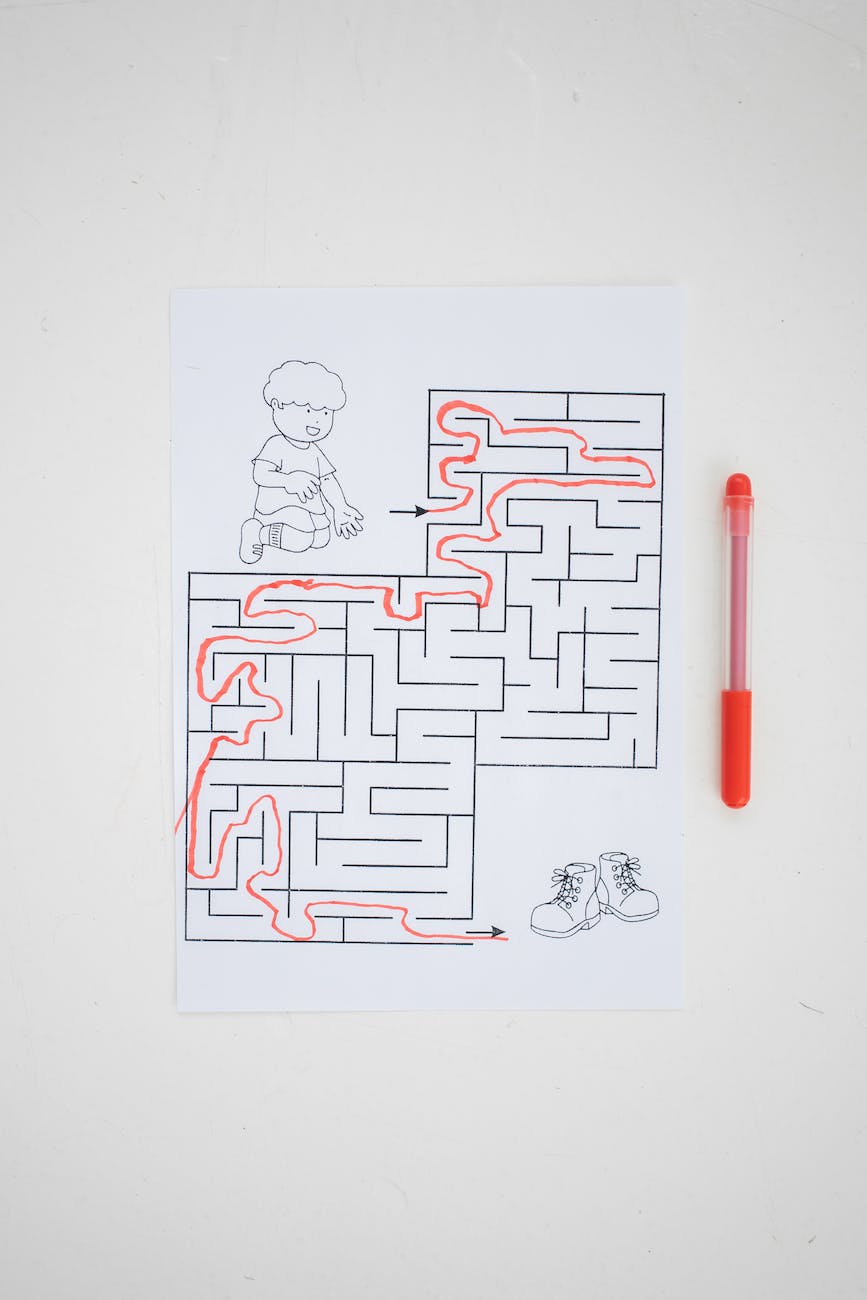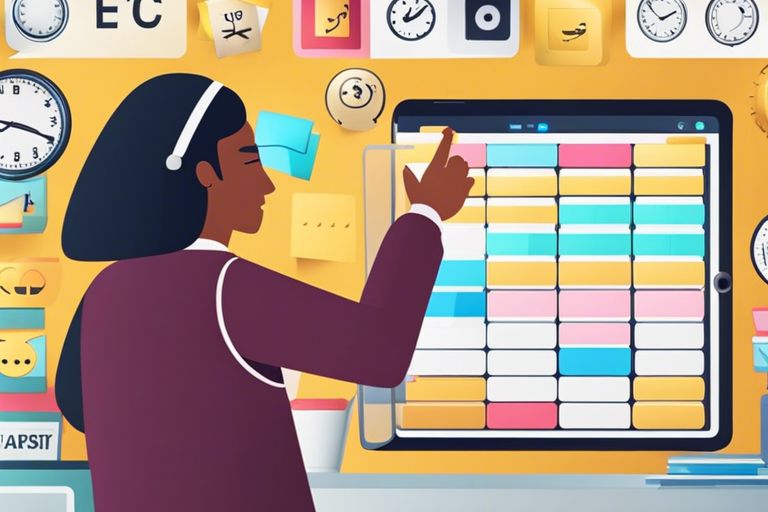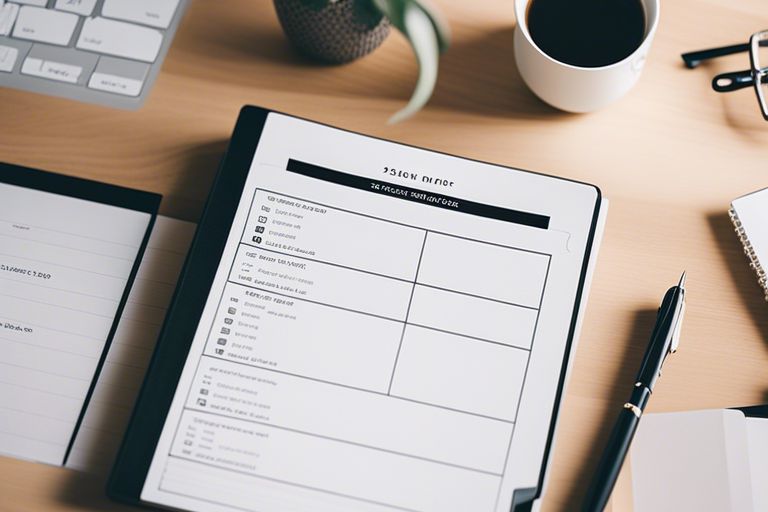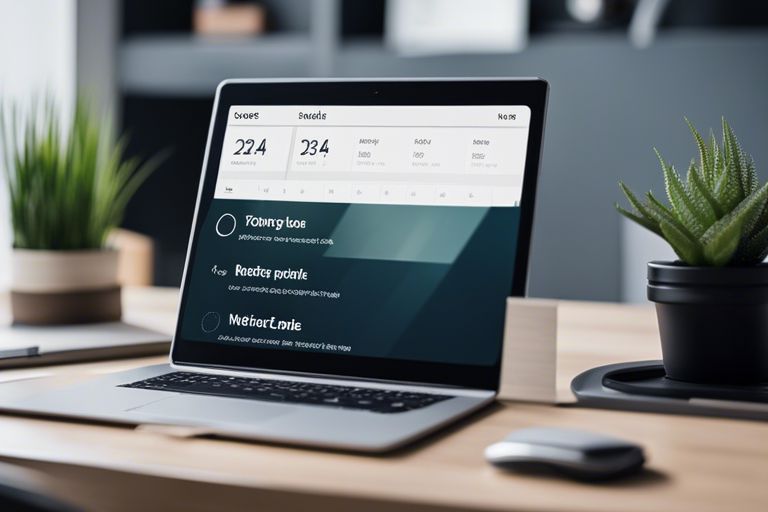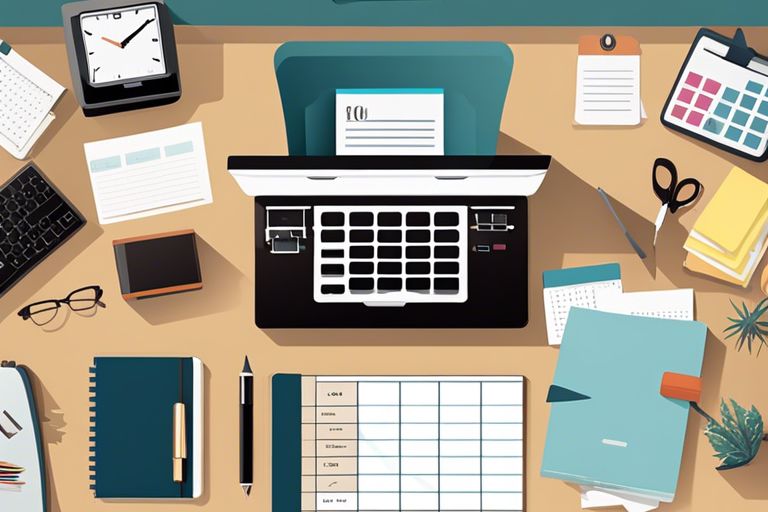The Importance of Effective Task Management
Effectively managing tasks is essential for individuals seeking to improve their productivity and organizational skills. By implementing efficient task management strategies, one can experience numerous benefits while avoiding the consequences of poor task management.
Benefits of Efficient Task Management
Efficient task management brings forth several advantages that contribute to personal and professional success. These benefits include:
Increased Productivity: Effectively managing tasks allows individuals to accomplish more in less time. By prioritizing and organizing tasks, one can focus on important activities and complete them efficiently.
Improved Time Management: Task management provides a structured approach to managing time. By allocating specific time blocks for tasks and adhering to deadlines, individuals can better utilize their time and avoid procrastination.
Enhanced Organization: With task management, individuals can create systems to organize and track their tasks. This helps in maintaining a clear overview of responsibilities, deadlines, and progress, leading to reduced stress and better time allocation.
Better Decision Making: By prioritizing tasks and understanding their importance, individuals can make informed decisions about how to allocate their time and resources effectively.
Reduced Stress: Efficient task management helps alleviate the feeling of being overwhelmed by breaking down tasks into manageable units. This reduces stress and enables individuals to approach their work with a clear and focused mindset.
Consequences of Poor Task Management
On the other hand, poor task management can lead to numerous negative consequences that hinder personal and professional growth. These consequences include:
Missed Deadlines: Without effective task management, individuals may struggle to meet deadlines or fail to complete tasks on time. This can lead to a loss of trust, missed opportunities, and negative impacts on reputation.
Decreased Productivity: Poor task management often leads to a lack of focus and direction. Individuals may find themselves spending excessive time on low-priority tasks or getting overwhelmed by an unorganized workload, resulting in decreased productivity.
Increased Stress and Anxiety: When tasks pile up and become unmanageable, individuals may experience heightened stress and anxiety. This can negatively impact both mental and physical well-being.
Inefficient Resource Allocation: Without proper task management, individuals may allocate resources, such as time, energy, and effort, in an inefficient manner. This can lead to wasted resources and missed opportunities for growth.
- Lack of Progress and Growth: Poor task management can hinder personal and professional growth. Without a clear plan and effective strategies to manage tasks, individuals may struggle to achieve their goals and fail to make progress in their endeavors.
By understanding the benefits of efficient task management and the consequences of poor task management, individuals can prioritize the development of effective task management strategies. Implementing these strategies can lead to improved productivity, reduced stress, and overall success in various aspects of life. To explore tools and technologies that can aid in task management, check out our article on task management software, task management apps, and task management tools.
Task Management Strategies
Effective task management is essential for maintaining productivity and achieving goals. By implementing proven strategies, individuals can optimize their workflow and ensure that tasks are completed efficiently. In this section, we will explore several task management strategies that can help individuals stay organized and focused.
Prioritization Techniques
Prioritization is a crucial aspect of effective task management. By assigning a priority level to each task, individuals can focus their efforts on the most important and time-sensitive items. There are various prioritization techniques to choose from, including:
- ABC Method: Categorize tasks as A, B, or C based on their importance and urgency. A tasks should be completed first, followed by B and C tasks.
- Eisenhower Matrix: This matrix categorizes tasks into four quadrants based on their urgency and importance. Tasks are classified as Urgent & Important, Important but Not Urgent, Urgent but Not Important, or Not Urgent & Not Important. This approach helps individuals identify and prioritize tasks accordingly.
Time Blocking Method
Time blocking involves scheduling specific blocks of time for different tasks or activities. By allocating dedicated time slots for specific tasks, individuals can focus on one task at a time and avoid multitasking. This method helps to increase productivity and maintain better control over time.
| Time | Task |
|---|---|
| 9:00 AM – 10:00 AM | Respond to emails |
| 10:00 AM – 11:30 AM | Work on project A |
| 11:30 AM – 12:00 PM | Break |
| 12:00 PM – 1:00 PM | Attend team meeting |
| 1:00 PM – 2:00 PM | Lunch break |
| 2:00 PM – 4:00 PM | Work on project B |
Breakdown and Chunking
Breakdown and chunking involve dividing larger tasks into smaller, more manageable subtasks. By breaking down tasks, individuals can approach them systematically and prevent feeling overwhelmed. This strategy also allows for better tracking of progress and provides a sense of accomplishment as each subtask is completed.
For example, if the task is to “Write a research paper,” it can be broken down into smaller subtasks:
- Research and gather sources
- Create an outline
- Write introduction
- Develop main arguments
- Write conclusion
- Edit and proofread
Eisenhower Matrix
The Eisenhower Matrix, also known as the Urgent-Important Matrix, is a powerful tool for task management. It helps individuals prioritize tasks based on their urgency and importance. The matrix is divided into four quadrants:
| Quadrant | Description |
|---|---|
| Urgent & Important | Tasks that require immediate attention and have significant importance. These tasks should be given top priority. |
| Important but Not Urgent | Tasks that are important but do not have an immediate deadline. These tasks should be planned and scheduled accordingly. |
| Urgent but Not Important | Tasks that are time-sensitive but do not contribute significantly to long-term goals. These tasks can be delegated or minimized. |
| Not Urgent & Not Important | Tasks that have little to no impact on long-term goals and can be considered distractions. These tasks should be eliminated or minimized. |
By categorizing tasks into the appropriate quadrant, individuals can focus their efforts on what truly matters and avoid getting caught up in unimportant or unnecessary tasks.
By utilizing prioritization techniques, time blocking methods, breakdown and chunking, and the Eisenhower Matrix, individuals can enhance their task management skills and improve overall productivity. Remember, effective task management is a continuous process, and it may require experimenting with different strategies to find what works best for you.
Tools and Technologies for Task Management
To effectively manage tasks and stay organized, utilizing the right tools and technologies can make a significant difference. In this section, we will explore three popular options: digital task management apps, project management software, and calendar and reminder apps.
Digital Task Management Apps
Digital task management apps provide a convenient and efficient way to track and organize your tasks. These apps allow you to create, prioritize, and manage tasks all in one place, making it easier to stay on top of your to-do list. With features like due dates, reminders, and progress tracking, these apps can help improve productivity and ensure that tasks are completed on time.
Some popular digital task management apps include:
| App | Features |
|---|---|
| App 1 | Feature 1, Feature 2, Feature 3 |
| App 2 | Feature 1, Feature 2, Feature 3 |
| App 3 | Feature 1, Feature 2, Feature 3 |
For a more in-depth comparison of digital task management apps, check out our article on task management apps.
Project Management Software
For individuals or teams working on complex projects, project management software is a valuable tool. These software solutions provide robust features to plan, execute, and monitor projects effectively. With features like task assignment, progress tracking, collaboration tools, and reporting capabilities, project management software helps streamline workflows and ensure project success.
Some popular project management software options include:
| Software | Features |
|---|---|
| Software 1 | Feature 1, Feature 2, Feature 3 |
| Software 2 | Feature 1, Feature 2, Feature 3 |
| Software 3 | Feature 1, Feature 2, Feature 3 |
To explore the different project management software available and their features, refer to our article on project management software.
Calendar and Reminder Apps
Calendar and reminder apps are essential tools for managing tasks and deadlines. These apps allow you to schedule tasks, set reminders, and view your upcoming events in a visual and organized manner. By integrating your tasks and appointments into a calendar app, you can effectively manage your time and ensure that you stay on track with your commitments.
Some popular calendar and reminder apps include:
| App | Features |
|---|---|
| App 1 | Feature 1, Feature 2, Feature 3 |
| App 2 | Feature 1, Feature 2, Feature 3 |
| App 3 | Feature 1, Feature 2, Feature 3 |
For more information on calendar and reminder apps and their features, check out our article on task management tools.
By utilizing digital task management apps, project management software, and calendar and reminder apps, you can effectively manage your tasks, streamline your workflows, and boost your productivity. Remember to choose the tools that best align with your needs and preferences to maximize their effectiveness in helping you conquer your to-do list.
Tips for Successful Task Management
To effectively manage your tasks and increase your productivity, it’s important to implement certain strategies. Here are some tips to help you successfully manage your tasks:
Set Clear Goals and Objectives
Setting clear goals and objectives is essential for effective task management. Start by defining what you want to achieve and break it down into smaller, actionable tasks. This helps provide clarity and focus on what needs to be done. Additionally, having specific goals allows you to prioritize tasks based on their importance and alignment with your objectives. For more information on task prioritization methods, refer to our article on task prioritization methods.
Create a Daily or Weekly Plan
Creating a plan for your tasks is crucial to stay organized and ensure that everything gets done. Whether you prefer a daily or weekly plan, it’s important to allocate specific time slots for each task. Consider using a planner, digital task management app, or calendar to schedule your tasks. Prioritize important and urgent tasks, and leave room for unexpected or unplanned activities. By having a plan in place, you can stay on track and avoid wasting time on unproductive activities.
Minimize Distractions and Interruptions
Distractions and interruptions can significantly hinder your productivity. To manage your tasks effectively, it’s important to minimize these distractions. Find a quiet and comfortable workspace where you can focus without interruptions. Turn off notifications on your phone or computer, or consider using apps or features that block distracting websites or apps. By reducing distractions, you can maintain your focus and complete tasks more efficiently.
Delegate and Outsource Tasks When Possible
Recognize that you don’t have to do everything on your own. Delegating tasks to others can free up your time and allow you to focus on more important or high-priority tasks. If you have team members or colleagues who can assist, assign tasks to them based on their skills and capabilities. Alternatively, consider outsourcing certain tasks to external professionals or services. This can help lighten your workload and ensure that tasks are completed effectively and efficiently. For more information on task management for teams and project task management, visit our articles on task management for teams and project task management.
By implementing these tips, you can enhance your task management skills and improve your overall productivity. Remember, effective task management requires clear goals, careful planning, minimizing distractions, and leveraging the support of others when possible. Continuously evaluate your task management approach and make adjustments as needed to optimize your productivity and achieve your goals. For more task management techniques and best practices, refer to our articles on task management techniques and task management best practices.
Developing Effective Habits
To truly conquer your to-do list and become a master of task management, it’s important to develop effective habits that support your productivity and organization. By establishing a routine, tracking progress and evaluating your efforts, and continuously learning and improving, you can enhance your task management skills and achieve greater success.
Establishing a Routine
Establishing a routine is a fundamental aspect of effective task management. By creating a structured schedule and sticking to it, you can develop a rhythm that allows you to efficiently tackle your tasks. Here are a few tips for establishing a productive routine:
- Set a consistent schedule: Determine the best time of day for you to focus on your tasks and allocate specific blocks of time for different types of activities.
- Start with a morning routine: Begin your day with a set of activities that help you prepare mentally and physically for the tasks ahead. This might include exercise, meditation, or reviewing your to-do list.
- Break tasks into smaller steps: Divide larger tasks or projects into smaller, manageable steps. This makes them less overwhelming and easier to incorporate into your routine.
Tracking Progress and Evaluating
Tracking your progress and evaluating your efforts is essential for effective task management. By monitoring your accomplishments and identifying areas for improvement, you can make adjustments and optimize your productivity. Here are some strategies for tracking and evaluating your tasks:
- Use a task management tool: Utilize digital task management apps, such as task management software or task management apps, to keep track of your tasks, deadlines, and progress.
- Create a progress tracker: Develop a system, either using a spreadsheet or a dedicated tool, to monitor your progress on specific tasks or projects. This allows you to visualize your achievements and identify any roadblocks.
- Regularly review and reassess: Take time to review your completed tasks and evaluate their impact on your overall goals. Identify what worked well and what can be improved, and make adjustments to your approach as necessary.
Continuous Learning and Improvement
To become a master of task management, it’s crucial to embrace a mindset of continuous learning and improvement. By seeking new knowledge, exploring different techniques, and staying open to feedback, you can refine your skills and achieve even greater levels of productivity. Here are a few tips for continuous learning:
- Stay informed: Keep up with the latest developments and trends in task management by reading articles, books, and blogs on the subject. Explore different task management tools and techniques to find what works best for you.
- Seek feedback: Request feedback from colleagues, mentors, or supervisors to gain insights into your task management skills. Use this feedback constructively to identify areas for improvement and implement changes.
- Celebrate achievements: Acknowledge and celebrate your accomplishments along the way. Recognize the progress you’ve made and use it as motivation to continue learning and growing.
By establishing a routine, tracking progress and evaluating your efforts, and embracing continuous learning, you can develop effective habits that support your task management journey. As you refine your skills and incorporate these strategies into your daily routine, you’ll find yourself conquering your to-do list with greater efficiency and success.

